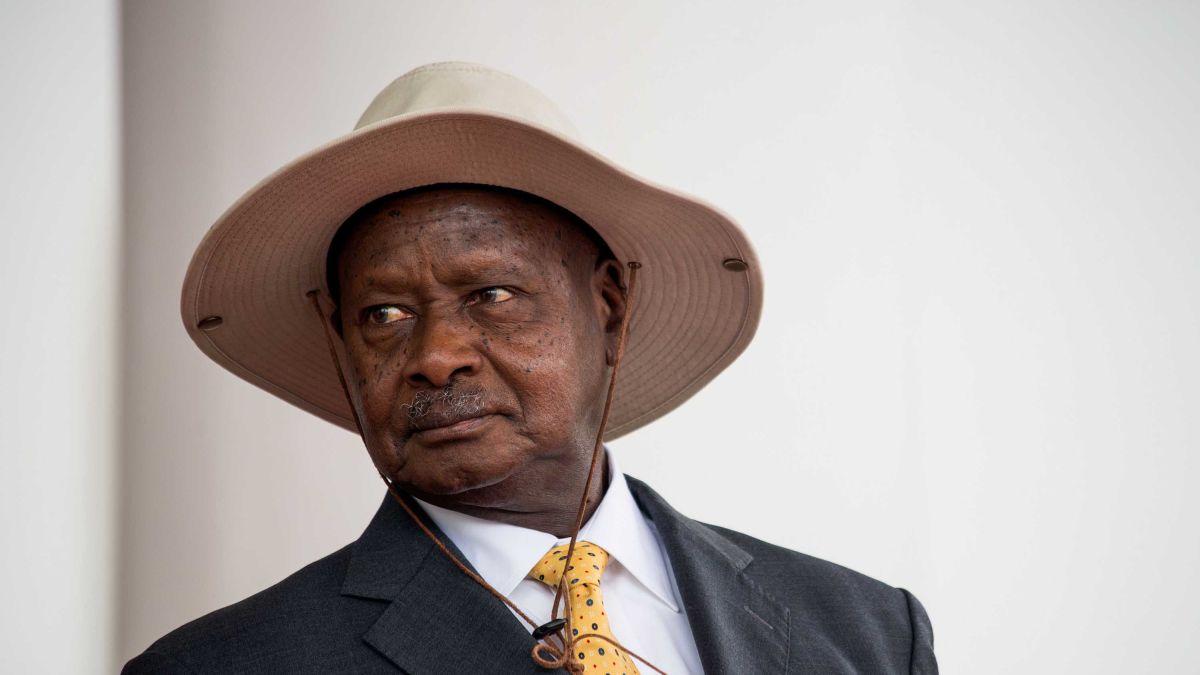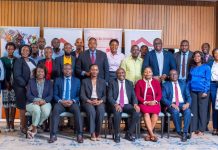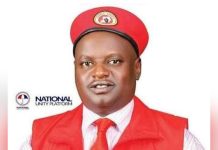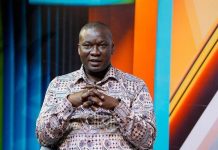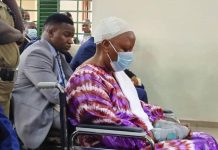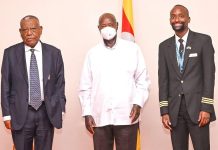By Faridah N Kulumba
Africa-Press – Uganda. On 14th December 2022, the President of Uganda Yoweri Kaguta Museveni was interviewed by journalist Remmy Bahati on the sidelines of the United States (US)-Africa Leaders’ Summit convened by President Joe Biden in Washington D.C between the 13th and 15th of this month.
During the interview President Museveni was asked several questions about security issues, worsening human rights abuses in the country by Uganda’s security forces, and his controversial son’s involvement in political matters among others.
The Interview in details
US refusing to acknowledge Musevei’s presidency
When President Museveni was asked to respond to the US’s decline to acknowledge his 2021 presidential victory which they said was marred with violence and vote rigging, Museveni responded by saying that he is not a President of Uganda because of the Americans or because of anybody else, but because of the people of Uganda who voted him into power. Adding that according to the Constitution of Uganda this is what determines who governs Uganda, not Americans, not [any] foreigners. Museveni also added that Americans are entitled to their opinions and that if they are misinformed, that’s their problem. But Ugandans are following the Constitution.
The benefits of US-Africa Leaders’ Summit to Ugandans
When President Museveni was asked how Uganda benefits from the US-Africa Leader’s Summit, he explained that African leaders are aiming for four things:-getting more investments, consolidating trade access, attracting tourists, and working with others on security issues against terrorism and crime.
Signed agreements
Ms. Bahati asked President Museveni whether he was able to sign some deals for his country while in the United States. He replied by saying that they advanced their work on the oil refinery [where potential investors announced a possible Final Investment Decision by next year].
Transitional of power
The most asked question of whether Uganda will ever have a peaceful transition of power came up. Although the interviewer brought in a way of comparing Uganda and US President Museveni was asked why Uganda never witnessed any peaceful transfer of power since the country got its independence in 1962, and how he feels about Joe Biden being the seventh American President since Museveni captured power in 1986.
This is how Museveni replied:- United States was founded in 1623. The then United Colonies of America gained independence from Great Britain on July 4, 1776, and following the Declaration of Independence, Congress renamed the country United States of America.
And America did not get even [get to have elections until [1789 – Editor]. He questioned how many years that passed. Yet Uganda is having elections every five years.
The United States is a country that was already consolidated by the time it started democracy. According to Museveni, they have consolidated Uganda together with democracy. The Americans built the United States for more than 100 years without democracy, without elections, But they have been able to rebuild and consolidate Uganda with democracy from the very beginning.
So, countries have different histories. By the time they went for the four years or the system they have now, it was much later. In fact, they did not adopt the two terms until 1945 [the two-term presidential limit was introduced through the 22nd Amendment of the US Constitution in 1951 – Editor]. There was a leader called [Franklin] Roosevelt who served [four] terms [prompting the amendment]. So, countries have got different histories. Uganda is different, and America is different.
Overstaying in the top office
The issue about President Museveni being one of the longest-serving Presidents was not left out when the Ms.
Bahati said that because he has overstayed in power, critics and other western governments, like how Museveni said in 1986, argue that leaders who overstay in power impede democracy, are corrupt and stifle civil liberties.
Museveni’s reply was Uganda’s statistics are clear. The economy of Uganda has [on average] been growing at 6.5 percent per annum for the last 36 years. Then the population has increased from 15 million to 43 million now. Education has gone up, and infrastructure [is better].
When Museveni was asked whether he is planning to stay in the top office for life his reply was that’s not what he wants but what the country needs.
Human rights violation issue
About the issue of human rights abuses in Uganda, Museveni was asked whether he is aware of the alleged abductions and killing of civilians, and many languishing in detention courtesy of state security forces.
He confessed but also defended these acts by explaining that there were arrests and that all of the people who were arrested were accounted for. There were some mistakes [of] mishandling people while they were being arrested, but those mistakes were corrected.
In November this year, the United Nations Committee on Human Rights against Torture released a report pinning the government of Uganda insisting that torture is widespread in Uganda. This followed the UN Committee Experts to summon the State’s human rights institutions and questioned them about unauthorized places of detention (safehouses) and inaction in prosecuting several torture cases.
According to Abderrazak Rouwane, Country Co-Rapporteur for Uganda and Committee Expert there were several reports that accused the Ugandan government of detaining people in unauthorized places. The Committee Expert noted that the Office of the Director of Public Prosecutions had reportedly taken no action to prosecute several cases of torture brought before it, including the alleged torture of an opposition member of Parliament.
About the first son Muhoozi
The interview did not skip the issue of the President’s controversial son Gen Muhoozi Kainerugaba and his involvement in discussing politics yet is still a serving soldier and his offensive tweets to Kenya. Museveni was asked whether he failed his son or his endorsing him. Museveni explained that he discussed with Muhoozi about tweeting. And advised him to tweet on non-controversial subjects like sports.
On 4th October this year, President Museveni fired Muhoozi as commander of the nation’s infantry forces after he tweeted provocative threats to capture the capital of neighboring Kenya. Muhoozi made headlines when he tweeted that he would only need two weeks with his army to capture Nairobi the capital city of Kenya.
General Muhoozi continued to surprise Ugandans through his recent tweets. He claimed that he only believes in Jesus and his father Museveni, not the ruling party National Resistance Movement (NRM)
American interference in Uganda’s internal affairs
On Friday 16 April 2021, the United States announced visa restrictions for Ugandan government officials whose actions they believe interfered with the electoral process which undermined democracy and respect for human rights, during January presidential elections. The media statement which was released by Antony Blinken the US Secretary of State said that the government’s actions represented a downward trajectory for democracy and respect for human rights, and opposition candidates were arrested and held illegally without charge.
The current United States study conducted by the Fragile State Index (FSI) listed Uganda as one of the countries whose stability is considered fragile. And the third East African country to be on the top list.
According to FSI, there are several factors that are attributed to a fragile state whose central governments are so weak or ineffective that n that it has little practical control over much territory, non-provision of public services, widespread corruption and criminality, refugees, and involuntary movement of populations and sharp economic decline.
Uganda-U.S relationship
The Republic of Uganda and the United States’ diplomatic relations were established in 1962, the year Uganda got its independence from colonial rule. In the post-independence period, Uganda endured despotism and near economic collapse. The human rights abuses of several Ugandan governments have stained US relations with Uganda. For the last 36 years since President Museveni came into power, Uganda has experienced relative political stability and economic growth, but also significant human rights, governance, and democracy deficits. Uganda also faces other challenges as well, including explosive population growth and power infrastructure constraints.
For More News And Analysis About Uganda Follow Africa-Press

